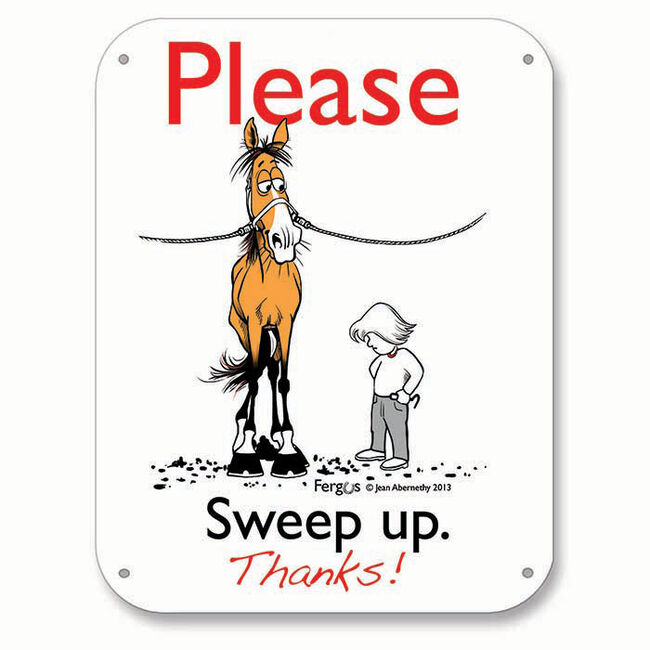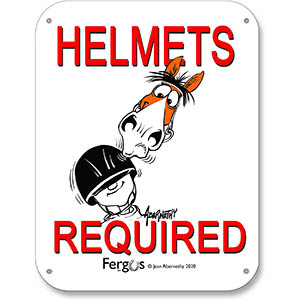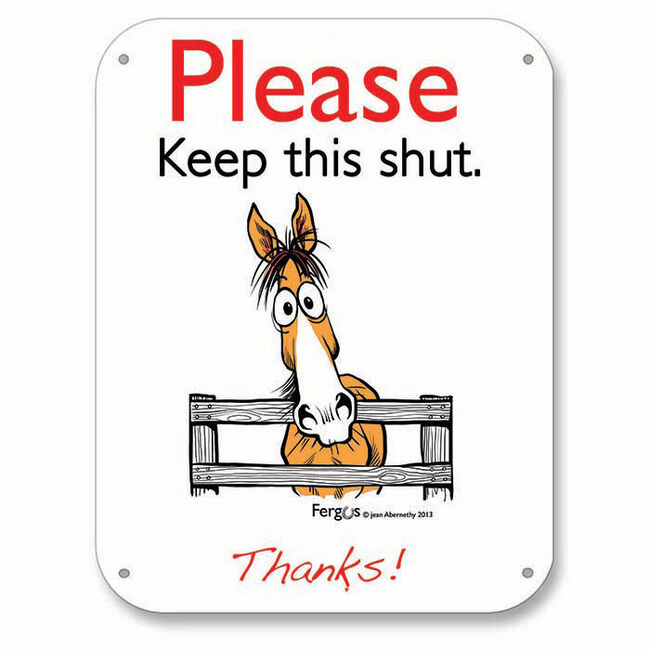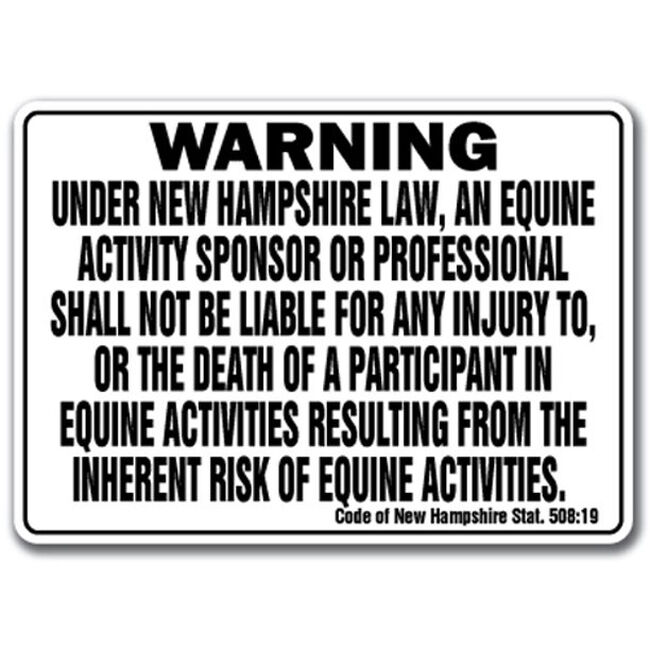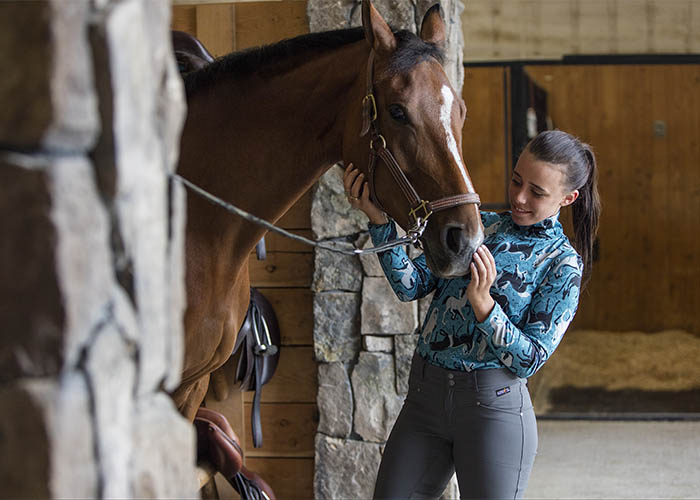
As equestrians, we all look for barns that will take the utmost care of our beloved horses—after all, our equines are part of the family. However, it is important to think about the way you treat the barn owners and staff that attend to your horse. When it comes to boarding your horse, there are a few things that you should always keep in mind. In this blog, we explore boarding barn rules and etiquette so that you can establish and maintain strong, respectful relationships with your barn owner, manager, and fellow barn mates.
Read the Rules
Many boarding barns have their own specific barn rules posted or have a copy available on their website. First and foremost, be sure that you read those rules and understand what is expected of you. By adhering to them, you can demonstrate that you are a valuable member of the barn community.
A very common rule is no smoking in or around the facilities. One of the best ways to prevent the nightmare of a barn fire is to adhere to the strict no-smoking policy around the barn—hay, shavings, etc. are all highly flammable and the smallest spark can ignite them.
Each barn has its own individual policy about dogs at the facility. Be sure to ask what the rules are regarding bringing your dog to the farm. If you are considering bringing your dog with you when you visit, refer to our blog post, A Guide to Bringing Your Dog to the Barn, for guidance on proper behavior and training for your pup.
Respect Others
Generally speaking, the number one expectation at the barn is to respect others, their horses, and their tack and equipment. The barn is a sanctuary for so many different types of people, so it is essential to treat everyone with kindness and respect. Also, it is so important to communicate with the barn owner if you notice safety hazards or if you run into any type of problem.
It can be tempting to get drawn into the barn gossip mill, but the fact is, this rarely ends well. While it is important to build friendships at the barn, it is beneficial to only enter into conversations that are positive and keep an optimistic attitude in the barn. Staying out of the barn drama will make it a more pleasant experience for everyone involved.
In the horse world, there are many opinions and ways to do things. Unless someone has expressly asked you for help in a situation, it is best not to give advice. Allow the barn owner, instructor, and trainer to assist your fellow boarders, and, if you see an uncomfortable situation, alert one of the professionals so that they can handle it tactfully.
If you need to use someone else’s tack or supplies, always ask permission before you do so. After using the item, return it to its proper location, in the same condition as before, or better. If you are borrowing a piece of tack, make sure that it is clean before you leave the barn for the day.
Clean Up After Yourself and Your Horse
Around the barn, it is your responsibility to clean up after yourself and your horse. Pick up your brushes, tack, etc. after you have used them and put them away in the proper location. If your horse leaves manure in the aisle or grooming stall, be sure to dispose of it promptly. Make sure that you sweep up the grooming stall or aisle if your horse is shedding heavily, if you body clip, or after you have picked your horse’s feet.
Dress For The Occasion
The best riding apparel is clothing that places the focus on riding and your riding position and a safe, well-fitting helmet. Try to present a neat and sensible appearance whenever you work around the barn. Consider leaving a set of spare clothing in your cubby or tack trunk so you can be prepared for changes in weather or last-minute visits to the barn.
Sandals and flip-flops are a recipe for disaster when worn around the barn. Whenever working around horses, you should wear sturdy, close-toed shoes that will protect your feet in the event that you are accidentally stepped on. If you will be riding, make sure that your boots have a heel on them to prevent them from slipping through the stirrup.
Be Punctual
If you have a scheduled lesson or meeting with your instructor, be sure you are on time for the appointment. It is often recommended that you get there early so that you can mount and warm up prior to your lesson beginning. Talk to your instructor to see what they would prefer.
Respect the Barn Hours
Many barns have set barn hours that they ask the boarders to follow. This is often because some of the barn personnel live on site and deserve their privacy; additionally, the barn needs to know when people will be riding in order to plan certain maintenance activities. If there is a reason that you will need to be there outside of the posted barn hours (i.e. early morning horse show or late night vet visit), make sure that you communicate with the barn staff.
Additionally, respect the barn hours as acceptable times to correspond with the barn owner and barn staff. Unless you have a true medical emergency, it is respectful to call and text only during the appropriate barn hours.
Pay On Time
While it may seem generally obvious, it is important to note that there is typically not a high-profit margin at boarding barns. Make sure that you pay your monthly board bill promptly so that the barn owner is able to provide your horse with hay, grain, and bedding as well as pay for the labor. If, for any reason, you have difficulty paying your bill, communicate with the barn owner directly and make arrangements.
Promote a Calm Atmosphere
A barn is a respite for many of the people that go there. A calm and respectful environment means one that is also quiet and relaxing. Whenever possible, try to communicate to others in a calm way so that you do not scare the horses or bother the other equestrians. Do your best to move slowly (no running, please) when working around the barn. If you bring your children to the barn, make sure they know what is expected of them, so that they do not spook the other horses and riders.
Attend to Your Horse
When you are at the barn, your horse should be your main focus. Stay near your horse when they are on the cross ties. Not only can unsupervised horses be a dangerous situation, but they can also make safely navigating the barn much more difficult for other horses and handlers. Gather your tack and equipment in the grooming/tacking area prior to bringing your horse to the cross ties or the grooming stall to avoid leaving your horse unsupervised while you go to the tack room.
Clean Equipment
Conditioned tack and washed saddle pads show respect for your horse and the farm. Clean your bridle (bit included), saddle, and girth after each ride, especially if it will be hanging in the community tack room. Consider figure-eighting your bridle as well. This is not only a reflection of you but also the farm.
Keep Gates Closed
If you open a gate or stall door to remove your horse, it is important to shut it behind you. Generally, try to leave everything in the same state that you found it. If your horse is in a turnout with other horses, speak with the barn manager to see if the other horses in the paddock need to come inside at the same time as yours to avoid separation anxiety.
Follow Feeding Protocol
Your barn manager carefully controls the diet of each horse under their care. Unless you have been asked to feed your horse, it is important that you do not add extra hay or grain to their stall. If you have concerns or want to make changes to your horse’s diet, consult with the barn manager.
Unless you have been given permission, only feed treats to your own horse. Some equines, such as those with insulin resistance or allergies, have specialized diets and the treats could make them ill. Additionally, some horses become nippy and their owners prefer that they are not fed treats from human hands—please respect their wishes.
Proper Arena and Trail Etiquette
When riding in the ring with other horses and riders, it is important to follow proper arena etiquette. There are many nuances to riding with other horses in the ring, but, in general, you should always pass left shoulder to left shoulder (often referred to as left to left). However, this changes if one person is in a lesson, jumping, or working on lateral work—then this person has the right of way (typically the outside track). Additionally, if someone is walking their horse out after work, they should stay on the inside track to allow others to ride freely. You should always ask the others riding in the arena before lunging or long-lining your horse. The number one rule of riding in the ring with others is to communicate clearly and make sure that the other equestrians know your intended direction.
If you are riding in an indoor arena (where the view outside of the ring may be obscured), it is a good idea to announce yourself prior to entering or exiting the arena. Calling out “door” in order to alert the other riders is customary at most facilities. Some farms ask you to pick their hooves prior to leaving the arena so that the footing remains in the ring.
If you will be hacking out or heading on a trail ride, it is important to let someone know where you are headed and when you expect to return. This way they can know where to look for you in the event of an emergency.
Ask Questions
If you need clarification about something or if you are confused about best practices, just ask! Any equine professional would much rather answer your questions than having something done incorrectly or potentially dangerously. You should always feel comfortable asking questions.
Positive Attitude and Gratitude
There will be times when you need to go with the flow. By being flexible and as accommodating as possible, you can help the barn be a positive place for everyone. Demonstrate gratitude towards the barn owners and those who keep their horses at the farm. Avoid whining or complaining about situations, instead, look for ways to solve them. If you see something that another boarder has forgotten to do, help them out — hopefully they will do the same for you in the future.
Be Honest
If you mess up (and everyone does a time or two), do not try to hide it or cover it up. By being upfront and honest about the situation, the barn staff can help you fix the mistake and will also respect and trust you more.
With the proper etiquette and respect for the horses and humans within the barn, you will quickly become a valued member of your boarding farm’s community. Whenever you are at the barn, it is important to remember that everyone there has different riding goals and motivations, and comes from a wide variety of backgrounds, but we are all brought together by one common thread—the love of the horse.

